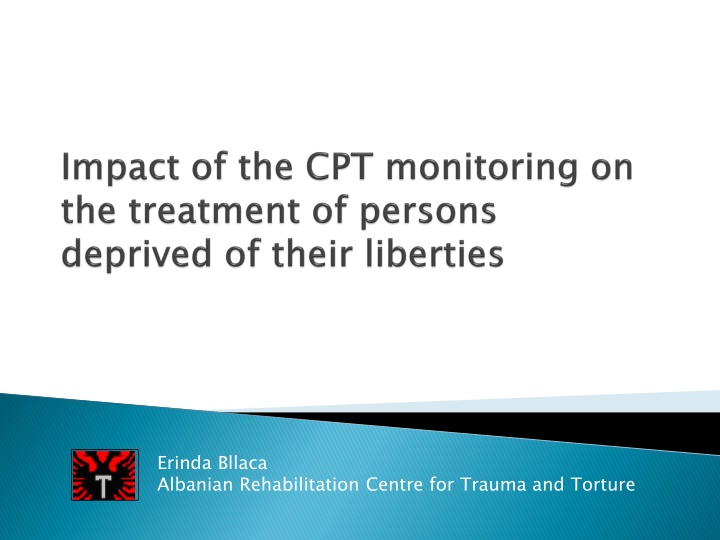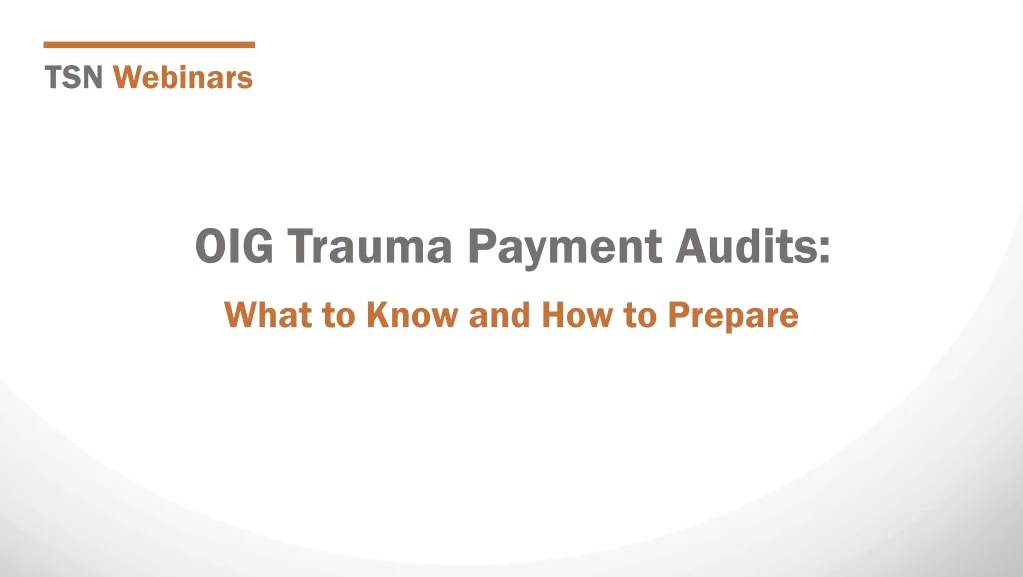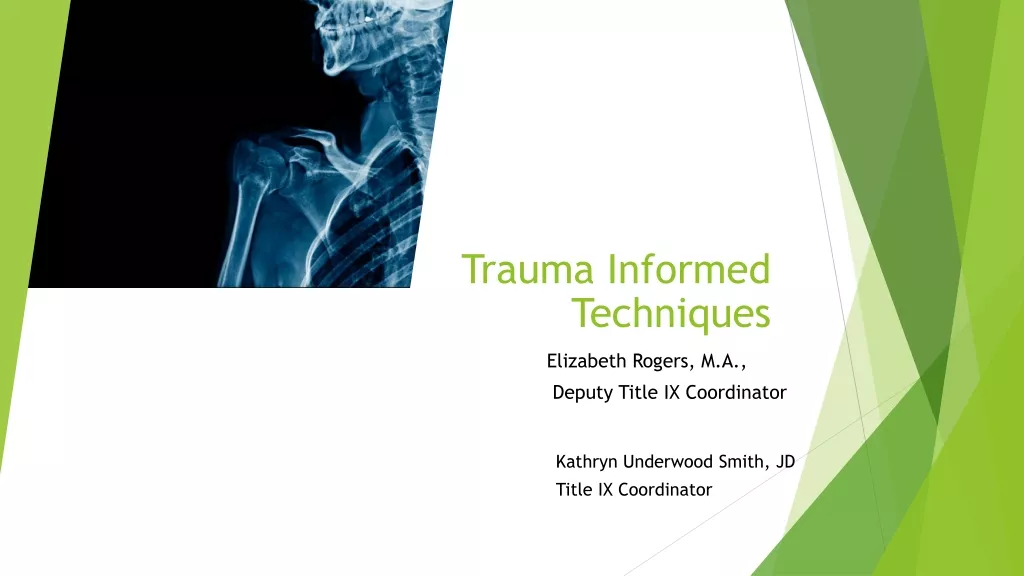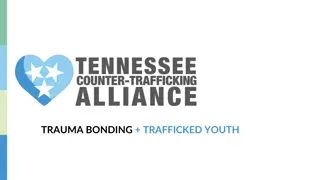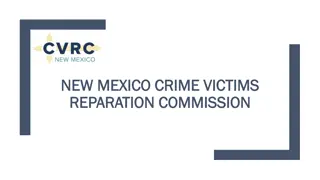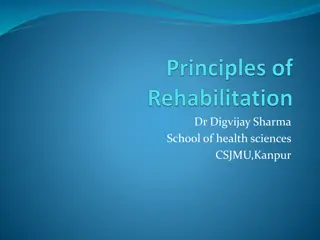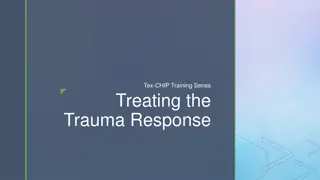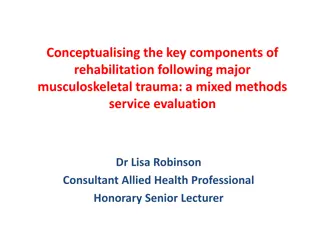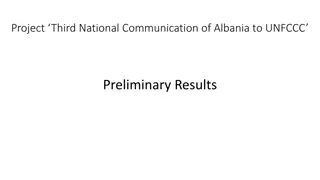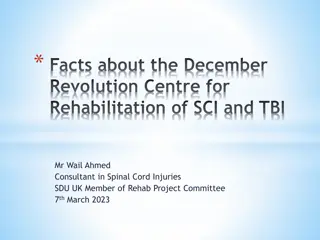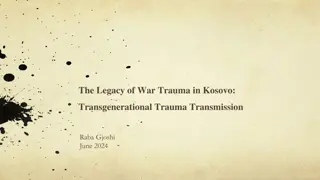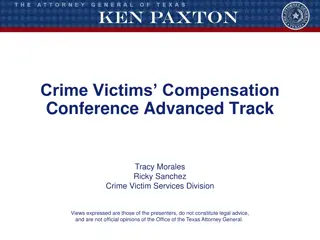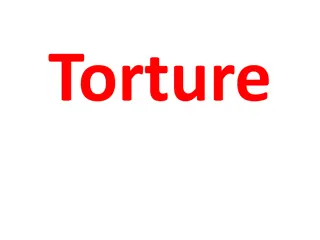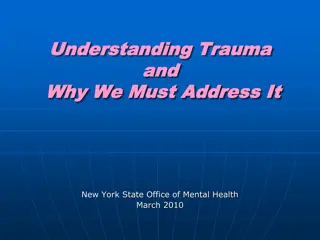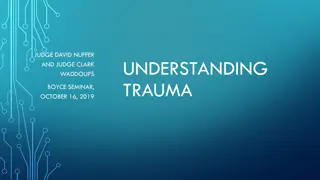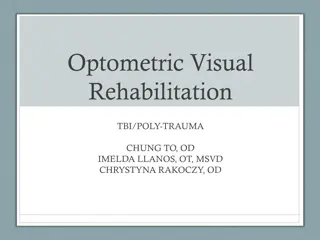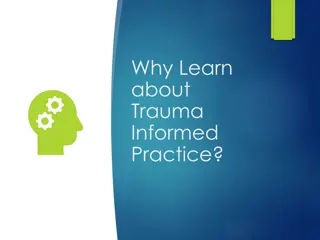Albanian Rehabilitation Centre for Trauma and Torture (ARCT) - Supporting Victims Since 1994
The Albanian Rehabilitation Centre for Trauma and Torture (ARCT) is a non-profit, non-political, and non-governmental organization in Albania dedicated to rehabilitating torture victims and preventing torture. Established in 1994, ARCT has been actively involved in supporting victims through various programs. Albania ratified the ECPT in 1996, leading to significant improvements in the treatment of individuals deprived of their liberties and protection against torture. The CPT visits have been crucial in urging authorities to make urgent changes, resulting in the public release of reports and enhancements in detention facilities. The collaborative efforts between the Ministry of Justice and Ministry of Health have contributed to the fight against torture and impunity.
Download Presentation

Please find below an Image/Link to download the presentation.
The content on the website is provided AS IS for your information and personal use only. It may not be sold, licensed, or shared on other websites without obtaining consent from the author.If you encounter any issues during the download, it is possible that the publisher has removed the file from their server.
You are allowed to download the files provided on this website for personal or commercial use, subject to the condition that they are used lawfully. All files are the property of their respective owners.
The content on the website is provided AS IS for your information and personal use only. It may not be sold, licensed, or shared on other websites without obtaining consent from the author.
E N D
Presentation Transcript
Erinda Bllaca Albanian Rehabilitation Centre for Trauma and Torture
Albanian Rehabilitation Centre for Trauma and Torture (ARCT) represent a small piece of the Albanian civil society organizations: it is a non-profit, non-political and non- governmental organization operating in Albania since 1994, designing and implementing programs that support the rehabilitation of torture victims (existing and new) and the prevention of torture Email: arct@albmail.com Website: http://www.arct.org ARCT, Albania
Albania has ratified the ECPT since 1996. First visit by the CPT was paid by the end of 1997 after the Convention entered into force 1997, Only in 2001, the Albanian authorities understood the important role that the CPT was playing with regards to the treatment of the persons deprived of their liberties the protection of such persons from torture and from inhuman or degrading treatment or punishment . ARCT, Albania
Although with no mandatory status, the CPT visits have always shaken grounds: The independency, confidentiality, multi- professional representation, and the direct language in recommendations put the Albanian state authorities in the situation where urgent change was needed ARCT, Albania
Albanian Govt. decided to make public the CPT reports since early 2000 The transfer of the pre-trial detention facilities happened in late 2007 Authorities introduced a system of regular and up-to- date information on the use of complaints mechanisms The Ministry of Justice developed a Master Plan with regards to the improvement of 19 detention facilities, and opening of 5 new places of detentions. ARCT, Albania
Albanian Police directorate in 2010 closed more than 45 police lock-ups. Changes in the primary and secondary legislation with regards to the treatment of persons deprived of their liberties (2010, 2012, 2014) A joint MoU between the MoJ and MoH with regards to forensic services was initiated in 2010 The Prevention of Torture and fight against impunity was widely introduced as part of independent prison oversight ARCT, Albania
Prisons: 1. Ali Demi (325)/Tirana 2. Jordan Misja (313) /Tirana 3. Vaqarr, /Tirana 4. Peqin 5. Burrel 6. Special Institution, Kruj 7. Fush -Kruj 8. Kor 9. Lezh 10. Tepelen 11. Rrogozhin 12. Lushnj 13. Correctional Juvenile Centre of Kavaja Prisons: Pretrial Detention: 1. 2. 3. 4. 5. 6. 7. 8. 9. 10. Sarand Pretrial Detention: Elbasan Prison Hospital Mine Peza (302) Durr s Kuk s Fier Tropoj Berat Vlor Prison population is 5850, out of the official capacities of 3800 inmates. Prison population is 5850, out of the official capacities of 3800 inmates. ARCT, Albania
General District directories (12) Police commissariats (21) Police stations (14) Border police units (8) A special centre for asylum seekers A special detention centre for illegal refugees ARCT, Albania
Durres PTD Rrogozhina Prison Lezha Prison Vlora PTD Fier Police Commissariat Juvenile Correct.Centre
Fushe-Kruje Prison Police Commissariat 2, TR Juvenile offenders Women Prison Cell Prison Hospital, Tirana Lezha Prison Cell
What was well accepted : The unified methodology in the monitoring, The broad scope of the mandate The access to places of detention The confidential interviews with inmates Such role started the National Campaign against Torture OPCAT/ establishment of the NPM Such role started the National Campaign against Torture and the process for the ratification of OPCAT/ establishment of the NPM and the process for the ratification of ARCT, Albania
Albania has inherited very old prisons from the communist regime, where the detentions were beyond imagination, and torture and ill treatment would have challenged even the Kallashnikov Case CPT has clearly articulated the appalling conditions in all high security prisons which belonged to previous regime in Albania Our main dilemma: How to approach the torture survivors of previous communist regime CPT mandate when torture is non derogible and universally prohibited How to approach the torture survivors of previous communist regime and why this issue remains out of the CPT mandate when torture is non derogible and universally prohibited and why this issue remains out of the
The todays monitoring practices show that civil society actors standards As part of their ongoing process of the regular and periodic monitoring, Regarding access to places of detention Periodic Data collection As opportunity to measure the changes and the development.. NGOs can challenge the culture of impunity with respect to ill-treatment in detention civil society actors have embodied the CPT monitoring ARCT, Albania
In 2006, Albania ratified OPCAT, and 2010 civil society lobbied with the Legislative and Executive to have it as part of the AP (a unit) EU strongly encouraged cooperation with professional and knowledge-based NGOs and other watchdog organizations, active in detention monitoring (MoUs) Dedicated, regular detention monitoring / as a preventive measure ARCT, Albania
An NPM, which does not provide a differentiated model of mandates, purposes and powers, with regards to the type of other AP inspections Dependant to AP for the resources and staff Non- acknowledgement of the civil society as part of the NPM, but rather preferential and as a hired expertise No comprehensive monitoring methodology or visit schedule developed to ascertain the periodicity ARCT, Albania
What if NPM does not fully apply the OPCAT requirements? How the independence should be maintained? Who controls the performance of NPM and what if fails? What makes the Sub Committee active in practice? Specific expertise of NGO rather than targeted as spies of international community, what is the added value with regards to the protection of basic rights of detainees? The mandate - how to protect the information gathered by NGOs, and how to avoid overlapping ARCT, Albania
How joint cooperation between NGOs and the CPT can ensure better documentation of violations as well as advocacy. In what fields could this cooperation be improved? How could the NGO sector contribute more and how could the CPT help the NGO sector more in reaching their goals? ARCT, Albania
Albanian Rehabilitation Centre for Trauma and Torture arct@albmail.com
